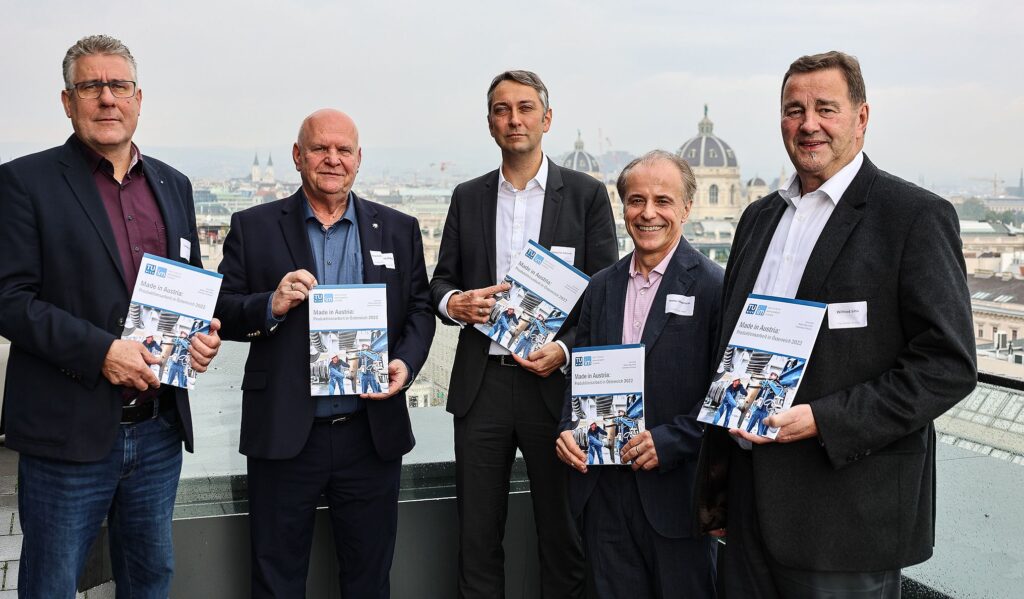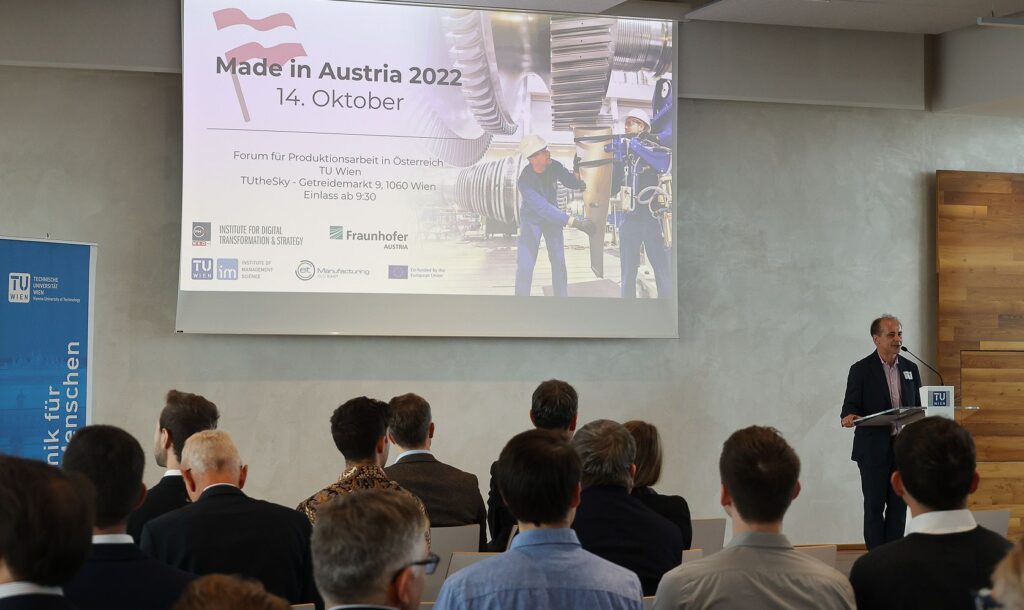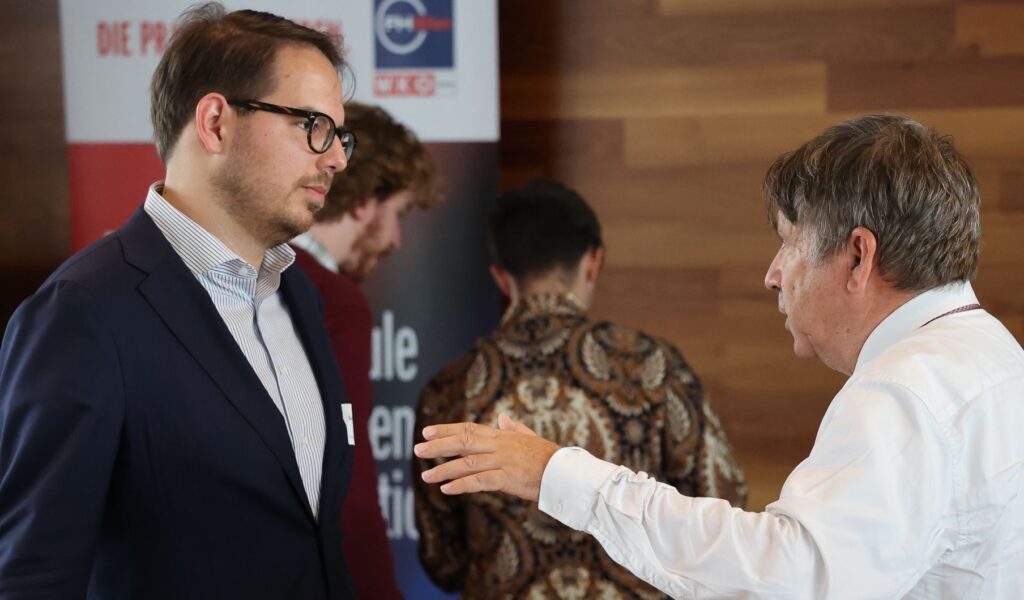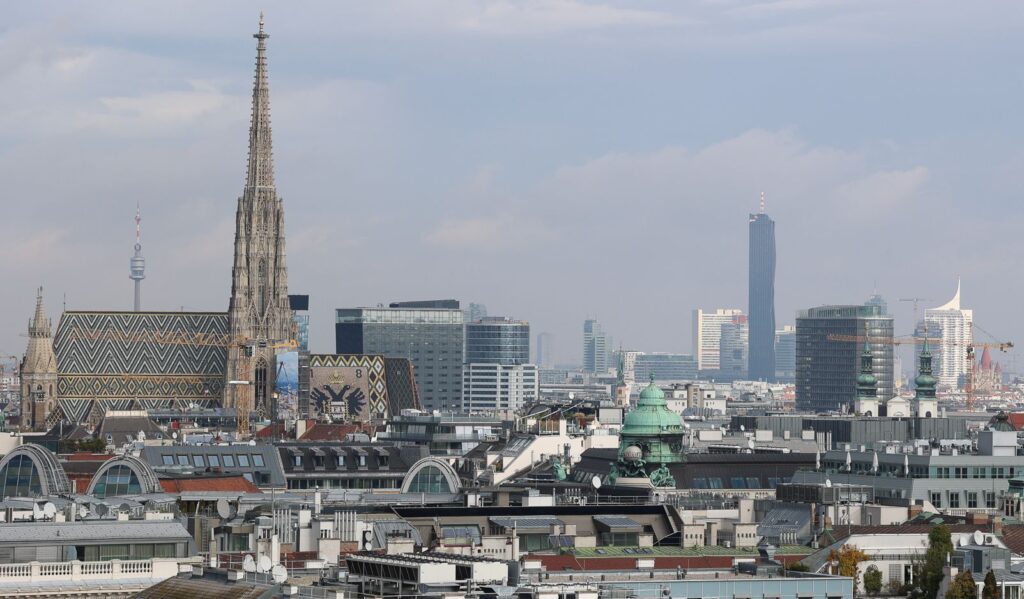Together with the IDS of FHWien der WKW, Fraunhofer Austria and EIT Manufacturing East, TU Vienna invited to a study presentation and discussion with experts above the rooftops of Vienna.

Walter Mayrhofer – Head of Research and of the Institute for Digital Transformation and Strategy (IDS) of FHWien der WKW – welcomed an interested audience of experts at the annual Forum for Manufacturing Work in Austria on Friday, October 14, 2022. After welcoming remarks by TU Dean Christian Bauer and Johannes Hunschofsky, Managing Director of EIT Manufacturing East GmbH, Sebastian Schlund, as Director of the Institute for Management Sciences (IMW) at TU Vienna, presented the results of the fourth industry panel “Made in Austria 2022: The Future of Production in Austria”.
Positive trends for innovative companies and a well-educated workforce despite deteriorating competitiveness
Even though the Austrian economy has proven surprisingly resilient to the consequences of the COVID-19 pandemic, the current study result shows a significant deterioration in competitiveness for domestic production sites. This is a premiere at the Industry Panel of TU Vienna in cooperation with FHWien der WKW, Fraunhofer Austria and EIT Manufacturing East, for which more than 100 executives of manufacturing companies have been surveyed annually since 2019. In terms of global economic development, there is still a certain optimism – contrary to national expectations and despite all uncertainties. The development of employment figures is also viewed much more optimistically than in the previous year. Regarding Austria, the experts’ assessments even exceed the pre-crisis level of 2019.
Production on Mars? A day about production work under difficult conditions
The day also offered exciting presentations from science, industrial practice and society. For example, Kirsten Tracht from the University of Bremen spoke in her keynote about “Producing with limited resources”. For this, she left Earth in a thought experiment and asked the questions: How could production on Mars be designed within the limits of the planet with the restrictions of materials, energy and personnel? And how might production on Earth benefit from these considerations?
Using inSpire – a framework for sustainability from voestalpine High Performance Metals GmbH – Phillipp Horner provided insights into real-life use cases that illustrated the framework, organizational structure, and ambitious goals. Andreas Graf from EVVA presented the “Cobot Integration” project and the associated design, security engineering and practical implementation challenges. Afterwards, TU students Alexander Kinzer and Tudor Nichitov presented their project on real-time determination of human posture for ergonomic awareness and human-oriented workplace design. Following the afternoon break, Brigitta Johanna Möstl from WeGenics took up the topic of a skilled labor shortage and showed how employees can be retained and the attractiveness for new talents can be strengthened authentically and sustainably. Michael Wollendorfer from Logistik Service then presented applications of Computer Vision in production and logistics.
The closing speaker was Olga Trofymova from the Ukrainian Automotive and Mobility Cluster, who showed in her talk “Crossborder Innovations” that transnational production can function even under the most challenging conditions.
In addition to the talks, the “Made in Austria 2022+ Forum” also proved to be an exchange and cooperation hub for experts in production work in Austria – and beyond.


